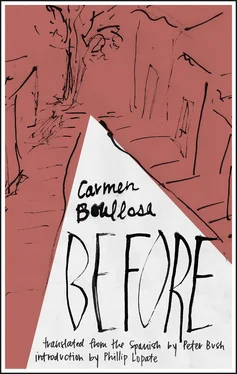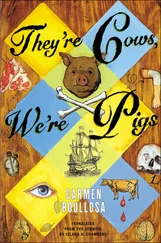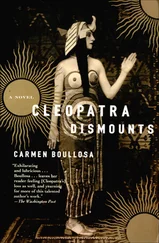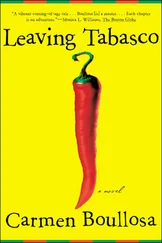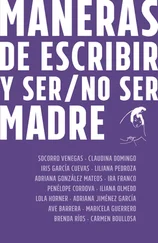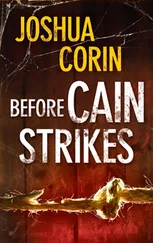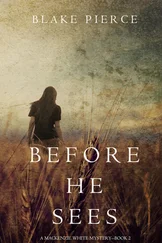Don’t imagine that what I saw was producing the noise! The geography of the noise (the sound of crickets’ wings rubbing, the dog’s nightly walk across the grass, a pigeon stirring, cars speeding by in the street like a gust of wind, yucca leaves, curtains touched by mosquitoes), objects settling perhaps, or perhaps the odd one, that wasn’t what I saw : I would like to have experienced the adventure as an explorer and discovered what could kill off my nighttime terrors.
The sonorous lexicon was only a small part of the non-verbal world I invented or inhabited as a child. What filtered through the sieve of words was the world I shared with the others: “Pass me the sugar, kick the ball to me, I’m cold, I want to eat, I want more dessert, I’m sleepy, I don’t like the teacher, Gloria’s my best friend, Ana Laura’s the tallest in the class, how daintily she walks, I don’t like going to Rosi’s house, Tinina is very good at basketball, I like Dad pillow fighting with us. Esther: I don’t like you shutting yourself up in your study, my sisters have another Mom who isn’t Esther, nobody talks about her at home, her grandma doesn’t like me, sometimes they go to see her, I heard that Dad pays my sisters’ grandma’s bills, the poor things, Esther took us to get our hair cut and left us in the beauty salon, the ladies chatted about things I never heard talked about at home, I’d like to have younger brothers, at school all the girls have little brothers, my collection of stickers is very small, my sisters’ very large, I think the PE uniform is ridiculous, my bike’s red, the building workers working on the corner sing all day, Inés made us orange jelly, I don’t want to take sandwiches, I want to have school meals…”
The non-verbal universe was much more prolix, had many more inhabitants, situations, was much more worldly…A world without words corresponding to each word. Scissors , for example, what are scissors? Two knives living together, opposite, yet in apparent harmony.
I’m going to tell you about scissors. Young girls were not allowed; they were an object we couldn’t touch. We only had access to pathetic scissors: blunt, stunted scissors with no point, wrongly called scissors.
Or in other words there were scissors and scissors. The first were adult weapons. They were for sewing, cutting material, hair…There were some dark gray ones in the kitchen — big, heavy, thick — so distinctive that on their account alone you could say there were scissors, scissors, and scissors.
The first were the ones Grandma used, those Mom used. You just had to grow up to have access to them. They were pale, shiny like the second pair (the “girls’ scissors”) and wore the mark of age — as if wrinkled — like the third.
The third pair lived in the kitchen. They were ownerless but had their uses: to cut chickens’ necks, chickens’ feet, to slice up meat to make stews. Not only was it totally forbidden for us to touch them, I wouldn’t have wanted to use them: they disgusted me. Though they cleaned them, they were always dirty.
That night I was woken by different steps, more scraping sounds, light, dangerous. I could hear them coming from afar, something told me I had to stop them. I got out of bed and went toward them. Something dragged itself toward me over the wooden floor in the dining room. I wasn’t afraid and went over: what was the turtle doing in the house? They’d brought her from Tabasco so Grandma could turn her into soup on Esther’s birthday, and were keeping her on the kitchen terrace so the dog wouldn’t bite her and she wouldn’t bury herself, because we’d never find her to cook if she hid under the ground.
What was she doing there? She was running across the dining room (we children know turtles can run), she ran toward me, her heavy burden lightened by fear. They’d told me not to go near her, that she could bite me, futile advice because there was no way to get hold of her head; hairless, wrinkled, she hid it as soon as she sensed someone approaching.
She ran toward me, her head touching me as she reached my calves. I crouched down: her eyes bright with panic, she didn’t call me by name, didn’t shout for help, because turtles can’t talk, that’s the only reason why. I picked her up and held her to me, as heavy as she was, and could still hear the steps, the dangerous steps that must be stopped at all cost.
I walked through the dark clasping the turtle to my bosom like a defenseless lover, as terrified as I was, I said to her: “I’m going to look after you, don’t worry.” I stroked her shell with her head resting on my shoulder, stroked her rough feet that were too short, and we could no longer hear the noise we were pursuing. Not one step more. Confidently, feeling powerful, I took the turtle to the kitchen terrace. I opened the door, left her on the ground, soothed and I think also exhausted after her long run. I gave her a little water in a dish, shut the door and went back to bed, surrounded by a pleasant silence.
As soon as my head was on the pillow, I heard something strange and felt heavy breathing underneath it: I lifted it up. The vile scissors from the kitchen were under my pillow.
What were they doing there? I was afraid of them as children usually are afraid, a sensation I was almost unfamiliar with and I didn’t know how to react. I picked them up with disgust, smelled their foul smell. I deliberated and decided to take them to the kitchen.
I don’t know how I reached my decision, I don’t know if I was more afraid of being scolded (I imagined the scene the next day: what were the scissors doing in my room? a question they would ask rudely) or was afraid of scissors. I took them and put them back in their place, hanging from a nail on the kitchen wall. I was on my way back to my room and to bed when I heard the scraping steps again.
I understood too late. I ran into the kitchen but the deed was done: the door to the terrace was open, the turtle was bleeding and the guilty scissors, splayed out, leaving two trails of blood on the floor. The turtle was headless and missing a foot.
Horrified, I went back to bed and didn’t cry because I was too afraid: who had repeatedly opened and shut the door? Who had left the scissors under my pillow and why? As on other nights, the quick beat of my heart lulled me.
The following morning I ran to the kitchen to see what they’d done with the turtle. I asked Inés the cook about the turtle and, as usual, she didn’t answer. She carried on squeezing orange juice for breakfast as if nobody had spoken to her: in her book we girls didn’t exist. We were things to be drilled into routine.
I tried to open the door to the terrace, but, of course, it was locked. Then Inés said: “Let the turtle be, you’ve been told it bites.”
I waited for Esther to come out of the bathroom. Why did she take so long to wash? I reviewed her body parts wondering what she’d be soaping, she’d taken so long, but I had listed them all mentally by the time she opened the door. When she finally emerged wrapped in a towel, I asked her about the turtle:
“It must be out there.”
“But is it?” I asked again.
“How can it not be there?” she responded. “There’s no way it can escape.”
I returned to the kitchen. The scissors hung dark and ominous on their hook, while the cook kept her back turned to me. I promised myself not to ask any more questions about the turtle.
We did have turtle soup on Esther’s birthday. As I stirred my spoon, I thought, “Which turtle went into this?” I couldn’t resist, and, breaking the promise I’d made to myself, I asked aloud:
“Which turtle went into this soup?”
“A river turtle,” Grandma replied.
“I know it’s from the river, but which turtle is it?”
Читать дальше
